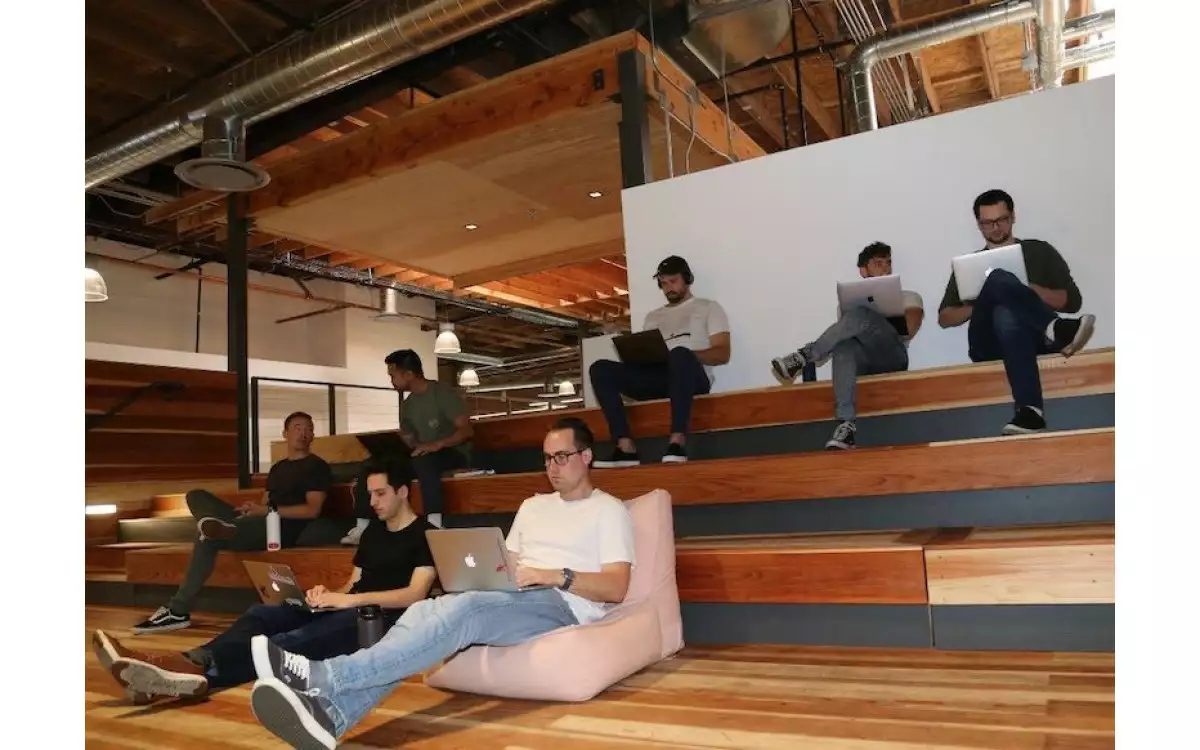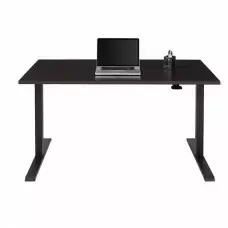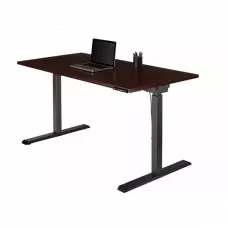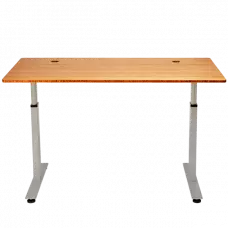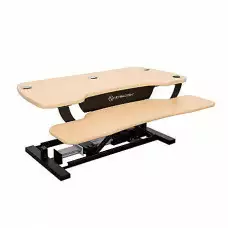Can you give a quick overview of what you do professionally and why you do it?
Erik: I’m Erik Huberman, Founder and CEO of Hawke Media. We’re an outsourced CMO and marketing team, so basically what we do is work with brands to identify their goals and marketing strategy. Then, we are able to spin up experts on an a la carte, month-to-month basis to build out their marketing—whether that’s Facebook marketing, email marketing, website design, or overall marketing strategy.
What do you find most meaningful about your work?
Erik: I found that it’s really frustrating to find help in marketing. It’s really hard to find and afford talented marketers to hire in-house, and then you end up operating in a vacuum. If you’re trying to hire agencies, 99 percent of them have no history or background in being successful at actually growing businesses, and the few that are decent tend to be really expensive, want long contracts, have high minimums, or want something else that makes them hard to work with.
The end result in the marketing ecosystem is that if you’re not a Fortune 1000 or a very sexy funded startup, you don’t get access to great marketing. The ecosystem felt broken, so we built Hawke Media on the concept and purpose that every founder and every company deserves top tier marketing. We’re going to bring it to them.
How important do you believe company culture is to an organization’s success?
Erik: Company culture is critical because the people that operate the company make the company. To me, culture is not just the happiness quotient and the feeling you get when you work there, but it’s also what people prioritize, where their heads are at, what they focus on, and how they operate that fall into culture and really dictate the success of a company.
Without naming the companies, can you give examples of good cultures you have worked in and bad cultures you have worked in and how they have led to positive and negative results respectively?
Erik: In a company with a solid culture, the people and the way they work is completely aligned with the purpose and goals of the company, so you see no friction in what you’re trying to accomplish because everyone’s in line and about it. As long as the company’s purpose is relevant, you will be successful.
On the other side, in a toxic company culture there’s usually a ton of conflict that stops people from accomplishing company goals. The happiness quotient all the way through profitability will hurt if the behaviors, actions, and personalities don’t match up with the purpose of the company and align with what you’re trying to accomplish.
If you look at the teams of highly successful and profitable new companies, their team members fit what they’re trying to accomplish from a priority and a moral standpoint, and they’re not just in it for the money. The team members truly bought into what their company is trying to do, and they’re only interested in making that goal a reality. Companies fall apart when team members aren’t aligned with the mission or treated well.
What is the company that you have worked for or with that you believe has the best culture and why? What can other companies do to emulate their success?
Erik: I really do love the culture at my own company. When we started, I looked at Google and Facebook’s company culture and was like, “Oh, so you need catering and a ping-pong table.” That’s literally what I thought company culture was. Tony, my business partner, explained that it’s the entire personality and spirit of the company, and it’s the most important thing we’re going to do here. While I focused on the building, expansion, and growth, he focused on the people. He was basically our main people person, and that’s why we’re successful.
We’ve built an amazing company culture, and the people here are very much bought into our mission. We’ve found people who were very clear on our core values from the beginning. People that don’t align with your purpose leave or don’t join because they’re not about it. If they don’t think you’re going in the right direction, they’re either going to be miserable and we’ll fire them, or they’ll leave on their own. The better we’ve communicated our purpose and the more we’ve managed to those core values—meaning how we reward and praise, down to how we fire and scold—the more we’ve basically filtered down a group of people who are all together and all aligned for one specific purpose.
What is the company that you have never worked for or with but believe has the best culture? What are about that company’s culture do you admire from afar?
Erik: If I haven’t worked directly with the company or had experience with them, seeing articles about their office culture doesn’t mean anything to me. I’ve seen many great articles about office culture and what a company’s spirit is, but I know it’s not necessarily true. Unless I’ve had personal experience, it’s unfair to comment on a company’s culture. To be clear, catered meals and a pretty office space does not mean good company culture.
Describe your office environment and how it relates to your company culture. Give us a feel for your office design, from the office furniture design to the intangibles.
Erik: We notoriously call our office the most comfortable place to be uncomfortable because we really are adamant about stepping outside of our comfort zones and working hard. Our original core values are “get shit done, learn quickly, and be cool”—the concept being we’re going to execute and get things done. We’re going to be flexible, constantly learning and changing. We’re going to be a cool group of people who actually get along, like each other, and enjoy working together.
Our office reflects these concepts. From a “get-shit-done” perspective, we have breakout rooms everywhere. Everybody has their own adjustable workspace. It’s up to them whether they want to stand up or sit down at their desk. Basically, we tried to create an environment where people are able to execute on the things they do.
Speaking to the “learn quickly” part, we have a whole auditorium where we often have presentations on new platforms and how things are changing at the company. All of the major social media platforms are in every week or every other week to present their new features and things that are rolling out. We’re always trying to help our people learn and improve. We have constant training, and we have areas for that as well.
Then on the “be cool” side, there’s a lot of hang out space. There’s an outdoor patio to hang out on. Every single area of our office has couches and breakout areas for people to relax together. We allow for a combination of our three core values: sociability, education, and just straight execution when people need to get their work done.
What do you believe are the key elements to creating and maintaining an uplifting office environment?
Erik: Understanding what drives your team is key. Uplifting is different to everybody. Some people like cubicles, some people like offices, and some people like open space. If you have a diverse group, which a lot of people would argue in your office workplace is important, then it’s just simple things that create an uplifting environment. Natural light, open space, and not being on top of each other completely all add to satisfaction.
Having a variability of workspace is pretty unusual and really important. I’ve also seen it with our own people. We just put chairs and couches outside on the patio, and people go to work there. People work in the kitchen. People work all over the place, not because their desk and chair is uncomfortable, but a change in scenery is nice for people, allowing for mobility and creative juices to flow.
Most people like a routine in some ways but don’t like things to get mundane. If all they do every day for ten years is go to the same desk, sit in the same place, and do the same job, they’re going to be bored and not want to do that. Finding ways from both their actual work as well as their environment to change, improve, and do differently I think helps the office environment to be uplifting. Plus, if you’ve got the right people that find your company’s mission inspiring and see progress towards it, that helps a lot too.
What does ergonomics mean to you? How has your knowledge of ergonomics impacted your work?
Erik: Having a workspace and furniture that compliments the way in which people want to work allows them to be comfortable. Going back to the statement about our office, creating the most uncomfortable place to be uncomfortable is important to us. That way, people aren’t focused on their work environment—that’s already handled, and it’s not a challenge. People can be focused on the actual work in front of them.
How do you buy office furniture? Do you buy furniture online? When do you decide to buy?
Erik: We have an amazing partnership with VARIDESK, and we buy by going directly to them. They’ve been incredibly supportive with our expansion, and they make amazing furniture. We’ve done a lot of work with them.
What office chair do you sit in and why? What specific features about your office chair do you appreciate and enjoy? And how would you weigh the relative importance of comfort, posture support, design, cost and other variables?
Erik: We sit in VARIDESK chairs, but we also use standing desks. The chairs are there if we need them. I use the chairs when I need to give my legs a break, but generally, I like to stand and be active. I sit plenty in meetings and in the car that a lot of times I like to stand.
What is your best advice on maximizing productivity in the office?
Erik: My best advice is to listen to your people and what they need to be productive. Hire smart people, and then listen to them. They’ll tell you, they’ll say, “Hey, this isn’t working.” Be open and don’t criticize when your people have feedback. Make your office a very conducive place to give feedback, and don’t try to predict it or figure it out yourself. Just talk to your people and ask them what they need.
What is your best advice on effectively managing others?
Erik: Servant leadership is key. If you’re managing people, you’re there to enable them. Remember that. Be a leader not a manager. Be there to remove obstacles and to help, enable, and train them. If you’re there to just critique and oversee them, they won’t be as productive.
What workplace trends do you see on the horizon? Leave us with three things we should be on the lookout for.
Erik: The retraction of open floor plan. There’s plenty of evidence that being a completely open workspace, just a big sea of desks, is not productive. I think you’re going to start to see office architecture and design move away from that a little more. With our office, we did more of a neighborhood approach. From a square footage perspective, you can’t give everyone an office, but breaking it up is super important. I think a neighborhood-style office approach is a trend that will continue because it’s something we heard a lot about and it’s worked really well for us.
A lot of companies continue to explore remote work, which will be interesting because company culture becomes super difficult with a remote workforce. I’m curious how it plays out. There are companies that do it fine, and other companies I think will try and fail. For certain companies like our own, it’s really hard to have a remote workforce when, in our example, our products are people. Building culture is incredibly important. For other companies, it’s not as critical, so they can have that remote culture. It’s a trend, but I don’t think it’s going to swing to one extreme or the other. I think you’re going to see some companies doing it and some not doing it, but I also think people are going to try to do it that shouldn’t.
Freelancers and outsourcing. I’ve seen a trend of not building everything in house and hiring companies, businesses, and services that are the best in class at what they do, as opposed to being delusional and thinking that you’re going to build every one of your departments to be best in class. You can’t think, “I’m going to have the best marketing and finance teams, and I’m going to be a five million dollar company.” That’s unrealistic. You can’t compete with, for example, Red Bull’s marketing team, so instead, you can find services and outsource to people that have been able to build best in class. They can do it because they’re different types of businesses. I’ve seen a lot of companies have been very successful in that.


